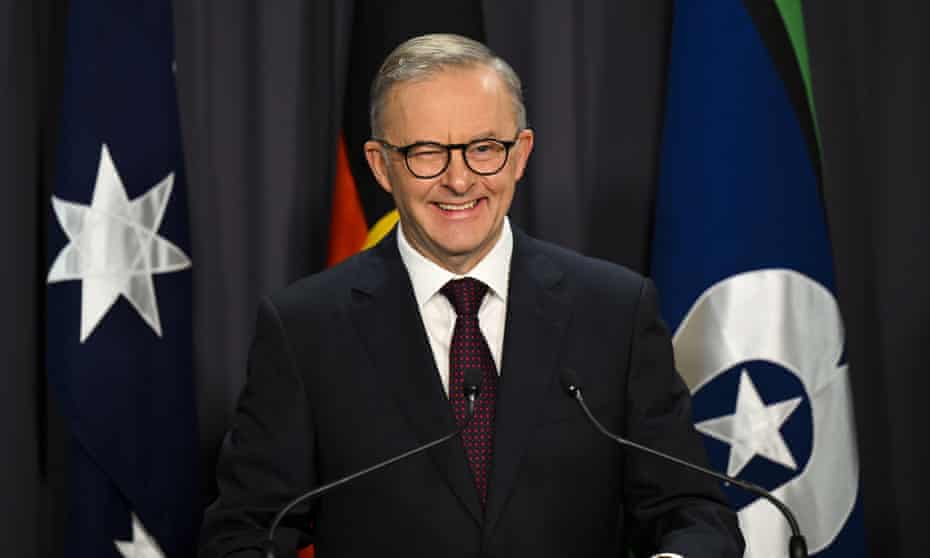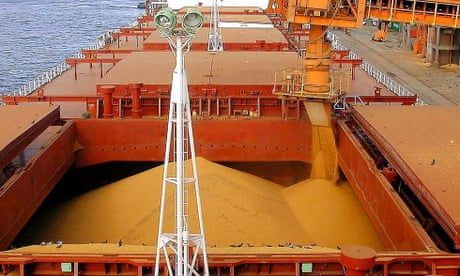Extract from The Guardian

Speaking to the ABC at the weekend the opposition leader, Peter Dutton, was asked repeatedly if he would support the Albanese government’s target of a 43% cut by 2030.
“Our view is that, er.. we will end up … erm … people haven’t put a figure on it but I would suspect we will end up with something like 35% with just what we were doing,” Dutton said, saying the Coalition would not back any legislation that put the Albanese government’s target into law.
Senior Liberal senator Anne Ruston has said it will be “up to the party room” to debate its climate policy. Nationals leader David Littleproud said on Wednesday he supported the target the Coalition took to the last election.
Tasmanian federal MP Bridget Archer says the 2030 target should be looked at, saying “in terms of what the number is, I suppose that is arbitrary to a point” and what was important was how targets were achieved.
But whatever number the Coalition comes up with, any new target will need to acknowledge there is effectively a new baseline for Australia’s level of ambition.
That baseline was set last week when the Albanese government formally submitted its new 43% target as part of its pledge under the UN’s climate convention – a document known as a National Determined Contribution (NDC).
Under agreements signed by Australia within that convention, each NDC submitted needs to be more ambitious than the one before.
This is what’s known as the “ratchet mechanism” and Prof Frank Jotzo, a climate policy expert at Australian National University, says any future Australian government that went back on that would break the spirit of the convention.
Jotzo told Temperature Check: “If an Australian opposition was to take on a commitment to a target that was lower than is now adopted, then that implies significant international costs that would need to be factored in.”
Jotzo pointed out Australia’s new target was still seen by many as inadequate. Analysts have said Australia would need to have adopted a 2030 target of about 60% to be in line with the Paris climate agreement.
“In many eyes the 43% target is still not sufficient, but it has been received as a big step in the right direction.”
When the Morrison government last formally communicated to the UN about its pledge in late 2020, it simply resubmitted its target of an emissions cut of 26% to 28% by 2030.
Even though Australia was not legally bound by its NDC, Jotzo said any decision to backtrack would affect diplomatic relations with Pacific neighbours and key allies like the United States, send negative signals to investors and could make it harder to negotiate bi-lateral trade agreements.

At the Glasgow climate talks last year, all countries agreed to submit new NDCs in 2025 that would have targets for the year 2035.
So Jotzo said by the time the next federal election rolls around in 2025, the debate will be all about 2035 target.
Planet Sky
Sky News Australia host Rowan Dean this week read out long sections of the Guardian’s coverage of a report that said his channel was a global content hub for climate denial and anti-renewables rhetoric.
As if to make the broader point of the report, Dean pointed to some recent cool weather and early snowfalls in Australia’s alpine region as a reason for people to question climate science.
“On what planet would a reasonably intelligent, slightly curious and possibly sceptical individual not ask the bloody obvious. Namely, is this in line with predictions about global warming from 20 years ago or is it not?”
Maybe a reasonably sceptical individual might know the difference between climate and weather, and understand these two things are different?
That said, this column last week looked at past predictions on the effect of global heating on snowfall. There were no predictions that it would not snow, but there were predictions that good snow seasons would come around less often than they used to.
Dean then asked a series of other questions, without answering them. So let’s take a few, like his question: “Is the planet really warming as fast as the models predicted?”
A 2019 scientific paper looked at 17 climate models produced from the early 1970s to 2007 to see how they did at predicting temperatures up to 2017. The study found 14 of the models were in line with observed temperatures, two had said temperatures would be higher than they were, and one had come in too low.
According to the World Meteorological Organization,
which looked at six main global temperature datasets from the likes of
Nasa and the UK’s MetOffice, each of the past seven years have placed
somewhere in the list of the seven hottest years on record.
They have, for decades, and the result always comes up the same.
Despite Dean’s previous claim a growing number of climate scientists were now blaming the sun for the climate crisis (which climate scientists said was wrong), the driver of global heating is rising levels of CO2 in the atmosphere, mostly from burning fossil fuels.
Barbecued Angus
In
interviews earlier this month the former energy minister, Angus Taylor,
claimed Labor’s assistant minister for health and aged care, Ged
Kearney, had campaigned to “ban the barbecue” in flyers she had handed
out in her electorate.
The Australian Associated Press’s factcheck unit examined if Kearney really did want to “ban the barbecue” as Taylor, and Liberal senator Hollie Hughes, had said.
The factcheckers hit a “snag” with this claim after they searched through references provided by Taylor’s office, finding nothing resembling advocacy for a ban on barbecues.
“The claim is inaccurate”, AAP concluded.
No comments:
Post a Comment